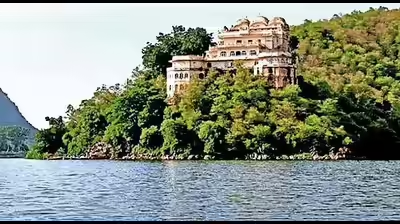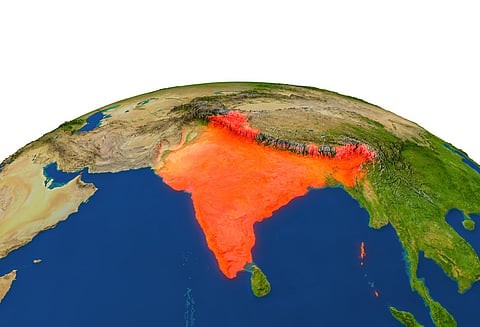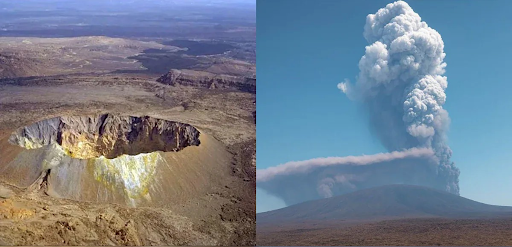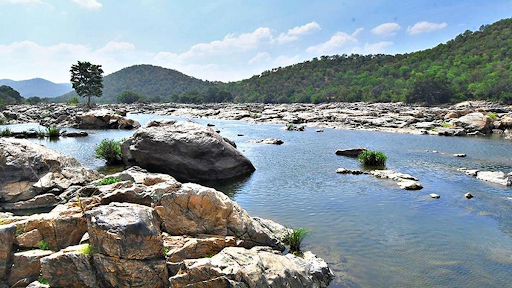Description
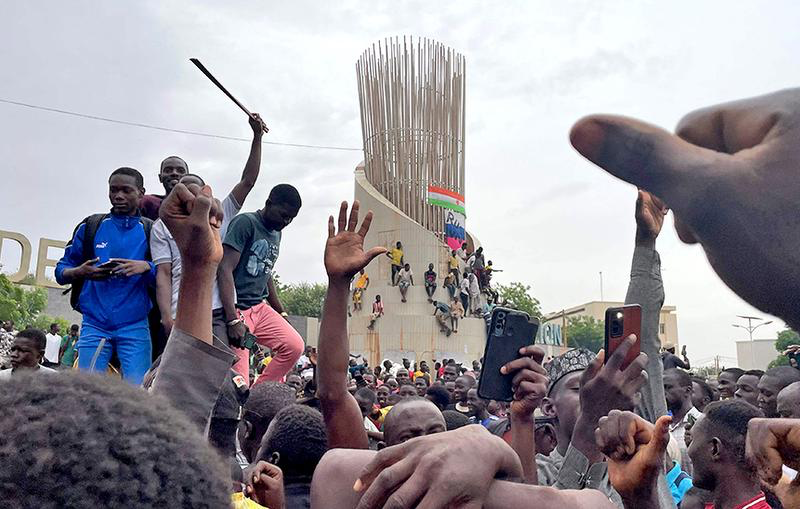
Disclaimer: Copyright infringement not intended.
Context
An attempted coup in Niger, a West African nation, where mutinous soldiers claimed to have ousted President Mohamed Bazoum.
Details
- On Thursday, Niger experienced an attempted coup as mutinous soldiers claimed to have ousted President Mohamed Bazoum.
- President Bazoum was elected in 2021, marking the country's first peaceful, democratic transfer of power since gaining independence from France in 1960.
- The attempted coup threatens the stability of Africa's Sahel region, which has witnessed multiple coups in recent years, affecting countries like Mali and Burkina Faso.
Rejection of the Coup
- The Nigerien government strongly condemned the coup attempt, stating that it cannot accept such actions.
- Minister of Foreign Affairs Hassoumi Massoudou called on all Nigerien democratic patriots to reject the coup and stand up against it.
- The government demanded the unconditional release of President Bazoum and stated that talks were ongoing.
Reasons for the Coup
- The mutinous soldiers, calling themselves the National Council for the Safeguarding of the Country, cited reasons such as deteriorating security and poor economic and social governance.
- They took control of state television and announced the suspension of all institutions, asserting that security forces were managing the situation.
- The attempted coup was allegedly triggered by President Bazoum's decision to relieve the head of the presidential guard, General Tchiani, from his position

President Bazoum's Stand
- According to a source close to the President, he has not and will not resign and is safe in his residence.
- President Bazoum tweeted that the hard-won achievements will be safeguarded, and he enjoys strong support among the population and political parties.
- A group of Nigerien political groups condemned the coup, describing it as "suicidal and anti-republican madness."
Implications for the Region
- The coup poses a significant challenge to efforts by Western countries to stabilize the Sahel region, which faces extremism-linked challenges.
- Niger was seen as an important partner in the region, but the coup raises concerns about political instability and its potential impact on security cooperation.
International Response
- The U.S. White House stated that there were no credible indications of involvement by Russia or Wagner (Russian mercenary group) in the coup.
- The international community closely monitors the situation in Niger and its potential implications on regional security and stability.
About Niger
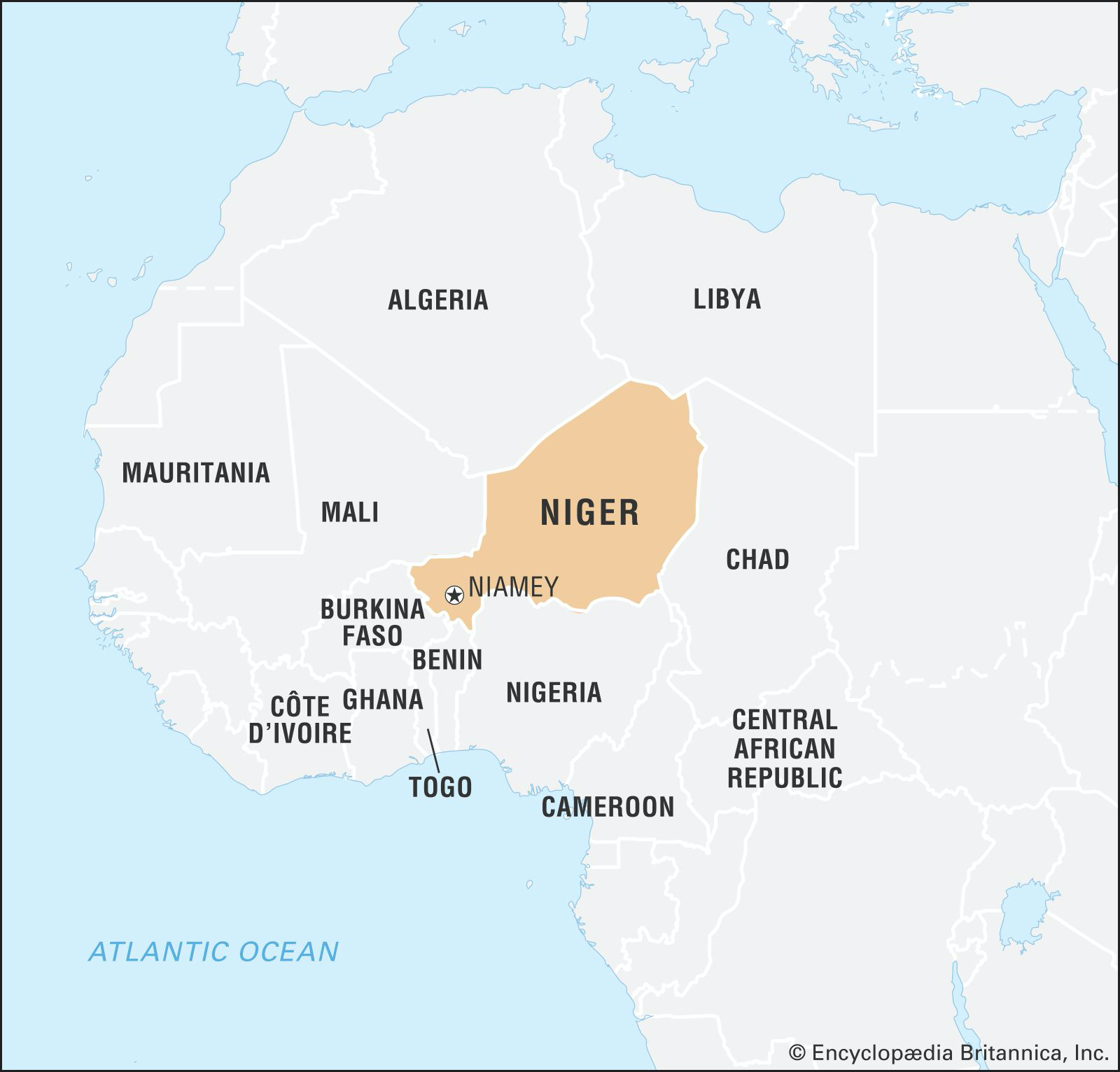
Disclaimer: Copyright infringement not intended.
- Niger is a landlocked country located in West Africa. It is bordered by seven countries, including Nigeria, Chad, Algeria, Libya, Benin, Burkina Faso, and Mali.
- Niger gained independence from France on August 3, 1960, making it one of the earliest African nations to gain sovereignty from colonial rule.
- The capital of Niger is Niamey, which is also its largest city and serves as the political, economic, and cultural center of the country.
Geography and Climate
- Niger is predominantly covered by the Sahara Desert, and its landscape comprises a mix of desert, semi-arid regions, and savannahs.
- The Niger River, one of the country's major water sources, flows through its southwestern regions.
- Niger experiences a hot and arid climate, with temperatures often reaching extreme highs during the day.
- The country's climate is characterized by distinct wet and dry seasons.
Demographics and Culture
- As of the latest data, Niger has a population of approximately 25 million people, making it one of the most populous countries in West Africa.
- The population of Niger is diverse, with various ethnic groups residing in the country.
- The Hausa, Djerma-Songhai, Tuareg, and Fulani are some of the major ethnic groups.
- The official language of Niger is French.
- However, there are several indigenous languages spoken throughout the country, reflecting its cultural diversity.
Political Landscape
- Niger operates as a semi-presidential republic, where the President serves as the head of state and the Prime Minister as the head of government.
- Niger has made progress in its democratic journey, witnessing its first peaceful transfer of power through elections in 2021.
Challenges and Concerns
- Niger faces security challenges due to the presence of extremist groups linked to al-Qaeda and the Islamic State in the Sahel region.
- These groups have carried out attacks, destabilizing the country and the broader region.
- Niger ranks among the world's poorest countries, facing significant challenges related to poverty, access to education, healthcare, and infrastructure development.
International Relations
- Niger is an active member of regional organizations such as the Economic Community of West African States (ECOWAS) and the African Union (AU).
- The country receives international assistance and aid from various countries and organizations to address its developmental and humanitarian needs.
Economic Activities
- Agriculture forms the backbone of Niger's economy, employing a large proportion of the population. The main agricultural products include millet, sorghum, and livestock.
- Niger has significant uranium reserves, making it one of the world's leading producers of uranium.
|
PRACTICE QUESTION
Q) Consider the following statements regarding Niger
- The official language of Nigeria is Arabic.
- The Sahara Desert covers the majority of Nigeria's territory.
Select the correct statements using the codes below
(a) 1 only
(b) 2 only
(c) Both 1 and 2
(d) Neither 1 nor 2
Answer: D
|
.jpg)
https://epaper.thehindu.com/ccidist-ws/th/th_delhi/issues/45368/OPS/G8SBHRJQ4.1+GBUBHRNNU.1.html







